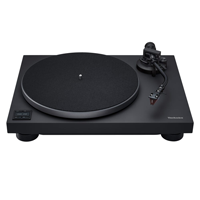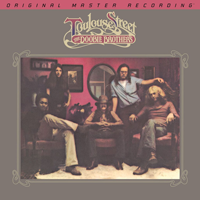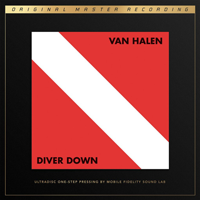As a music guy from the get-go, I was never much into sports. My father thought I was switched at the hospital due to the fact I wasn't really interested in watching college basketball with him all day as a kid. But then, Michael Jordan came here to Chicago. Not only did his presence change the growth trajectory of the city, but he mesmerized the world with his otherworldly basketball skills and magnetic personality. I was instantly hooked on professional basketball and could talk about every player in the NBA with authority. Hell, even my grandmother could.
I am writing about Jordan because of last night's debut of "The Last Dance," the 10-part documentary series on ESPN about the Bulls' final championship run. The first episode primarily chronicles Jordan's early years. Watching it brought me back to the late 80s and the incredible transformation of the Bulls franchise. Before they were winning championships, I was fortunate enough to have seen Michael play in the old Chicago Stadium many times. He would score 50+ points and the Bulls would lose by 20. Still, seeing Michael (with hair on his head) playing was nothing less than awe inspiring.
It made me think of how memories of a great sports franchise can be as transformative and emotionally compelling as music. As I watched the documentary – its name borrowed from the world of music – I felt that same tingle I get from my favorite LPs. The same part of my brain and heart getting activated. The Bulls played so spectacularly well together, and it certainly didn't hurt that the team had the greatest player to ever touch a basketball on the court. The relationship functions as a great analogy to Miles Davis' second great quintet – an incredible team of musicians all made better following the lead of the greatest trumpeter in jazz history.
Today's Special Guest Contribution: Miles Davis' Second Great Quintet
By Joe Harley, Audio Engineer/Producer/Dog Lover/Gentleman
I became aware of Miles Davis' music in my early teens. The first Miles album I brought was E.S.P., essentially the debut by what is often referred to as the Second Great Quintet. The first featured John Coltrane, Red Garland, Paul Chambers, and "Philly" Joe Jones. Miles' Second Great Quintet (SGQ) comprised Miles, Wayne Shorter, Herbie Hancock, Ron Carter, and Tony Williams.
When I first listened to E.S.P., my mind was blown. I was living in Lincoln, Nebraska, and my absolute view of myself at the time was as a drummer. I lived and breathed percussion, and had done so since around the age of six. At the time, I was considered a prodigy in Lincoln. And since Lincoln was my whole world, I thought I was a bad-ass drummer!
Imagine my surprise when the first notes of "E.S.P." (the title track) came on. What the hell was going on? Who was that incredible drummer? And why was he doing things I could hardly fathom, much less execute? I looked at the jacket. His name was Tony Williams. OK, I had to learn all I could about this guy.
I rode my bicycle down to the main library, where they kept DownBeat magazines on file. This would have been 1965, so I was 13 years old. I dug through copies of DownBeat until I found an article about Miles that mentioned his new quintet, including his new 17-year-old drummer, Williams. What? This guy was four years older than I was, and he was not only playing with Miles, his drumming was otherworldly.
Miles' SGQ made five albums – six if we include (and I think we should) Filles de Kilimanjaro, on which Chick Corea and Dave Holland replace Herbie Hancock and Ron Carter on a few tracks. (The five other albums are E.S.P., Miles Smiles, Sorcerer, Nefertiti, and Miles in the Sky.) The music-making on these efforts is extraordinary. Tempos are treated like taffy. They speed up, they slow down, they come to a near dead stop, all within the same tune. Just check out "Country Son" on Miles in the Sky. The level of intense communication between all the players – one of the facets that makes jazz so fascinating – is, as the album title says, E.S.P.
Some might accuse me of being a shill for saying so, but if you love Miles' music, and especially if you love the music of the SGQ, you absolutely need to have the Mobile Fidelity vinyl reissues. Now, I have first-edition pressings – bought them all, aside from E.S.P., on their respective release days. But you have simply not heard the wonders lurking inside the grooves of these albums until you have experienced the MoFi 45RPM remasters. If you think you know these albums from the original pressings, I can assure you a brand-new set of sonic wonders awaits you with these special pressings. If you think otherwise, the problem lies either with your system or your ears. It's not even close.
I've given a lot of thought to why Miles' music speaks to me so directly. And it's the pure emotion. When Miles plays, you don't think about technique or trumpet gymnastics. Instead, you feel like you're getting a peek into his heart and his soul. Miles, like a chosen few other musical geniuses, is a singer of songs. When he plays, you don't hear the notes as much as you feel them. His sound has been described as "a man walking on eggshells" or a "little boy crying in the closet." And while Miles was infamous for his brooding and aloof exterior, his music tears all of that away to reveal his vulnerable self and true soul. Isn't that what all great music was created to do for us?
Today's Second Special Guest Contribution: King Crimson In the Court of the Crimson King
By Mark Schneider, Music Direct Senior Audio Consultant and Pun Fanatic
I have three coworkers named Matt – and all play the drums. Sometimes, I feel like I'm the only Music Direct employee that doesn't play an instrument and/or play in a band. All my colleagues are music fanatics and possess an extremely diverse range of tastes. Music is always playing all over the office and warehouse. It's a big part of how we interact – both by sharing newfound gems and gently ribbing each other for possessing what another feels is poor taste.
With a majority of our office working from home and practicing social distancing, we now get to listen to music only of our own choosing. Yet it's the simple act of sharing music with others, or have great music shared with us, that makes it so enjoyable. I really miss hearing different music playing around the office, and seeing the joy (and occasional conflict) it produces. I'm eager to get back to working in the office – not just to continue sharing music, but to see all my coworkers again.
Back to what I wrote about those drummers. I love King Crimson, a group that offered excellent employment opportunities for percussionists. In its history, the band has performed with one, two, three, and even four drummers on stage at the same time. (And none have been named Matt.) Many people know the group's early success from "21st Century Schizoid Man" off In the Court of the Crimson King as well as its atmospheric songs, which led the way for the British prog-rock invasion featuring Pink Floyd, Emerson, Lake & Palmer (Greg Lake was King Crimson's bass player), Yes, Gentle Giant, and others.
Not surprisingly, King Crimson boasts a vast discography, including many live releases. What's not to like about a collective with song titles like "The World's My Oyster Soup Kitchen Floor Wax Museum"? Intrigued? Several excellent compilations are available to sample. Even if your name isn't Matt!
| In This Article |
20th Apr 2020




































